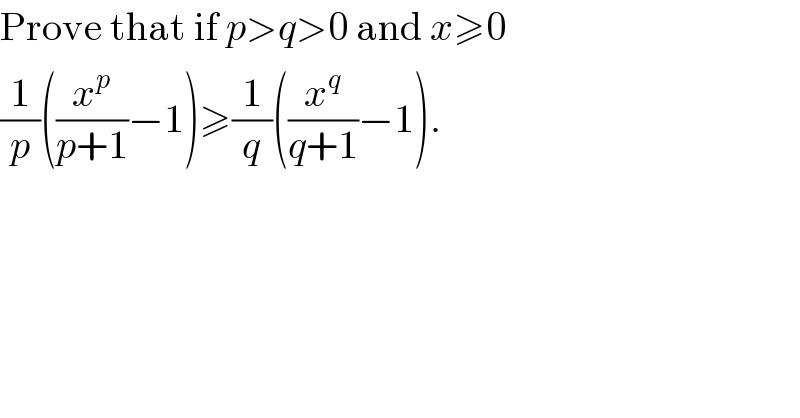
Question Number 13731 by prakash jain last updated on 22/May/17

$$\mathrm{Prove}\:\mathrm{that}\:\mathrm{if}\:{p}>{q}>\mathrm{0}\:\mathrm{and}\:{x}\geqslant\mathrm{0} \\ $$ $$\frac{\mathrm{1}}{{p}}\left(\frac{{x}^{{p}} }{{p}+\mathrm{1}}−\mathrm{1}\right)\geqslant\frac{\mathrm{1}}{{q}}\left(\frac{{x}^{{q}} }{{q}+\mathrm{1}}−\mathrm{1}\right).\: \\ $$
Commented bymrW1 last updated on 25/May/17

$${function}\:{f}\left({x}\right)=\frac{\mathrm{1}}{{x}}\left(\frac{{a}^{{x}} }{{x}+\mathrm{1}}−\mathrm{1}\right)\:{is}\:{for} \\ $$ $${x}>−\mathrm{1}\:{increasing},\:{so}\:{f}\left({p}\right)>{f}\left({q}\right). \\ $$ $${we}\:{must}\:{only}\:{prove}\:{that}\:{f}'\left({x}\right)>\mathrm{0}. \\ $$
